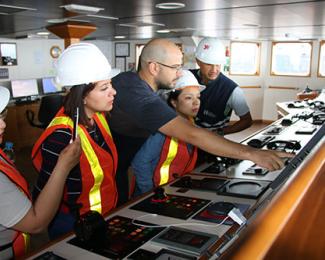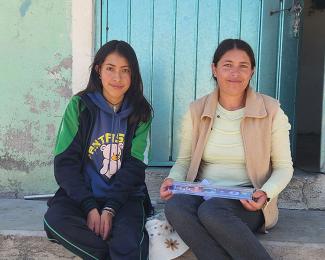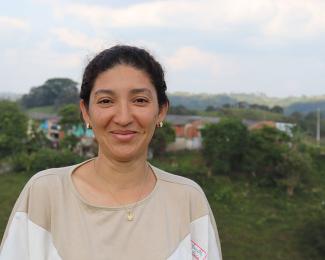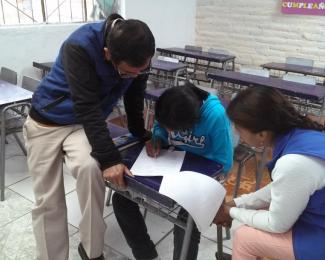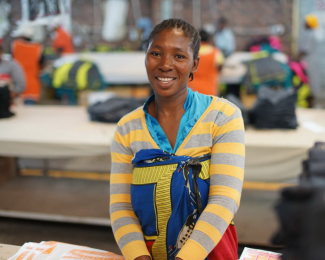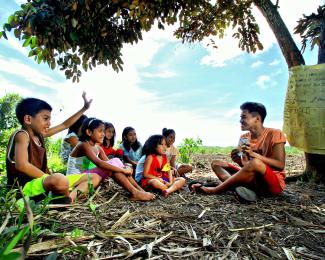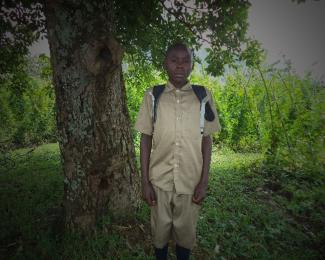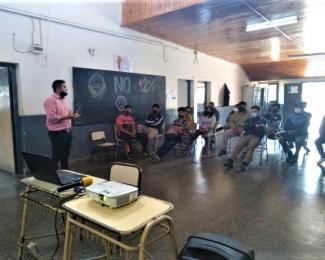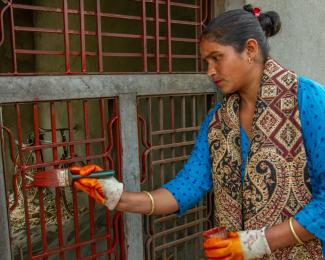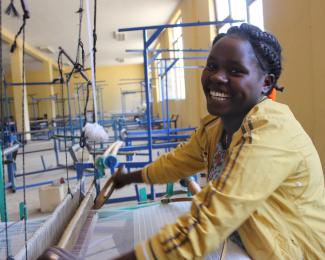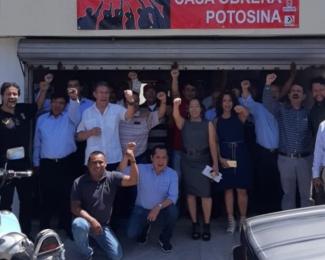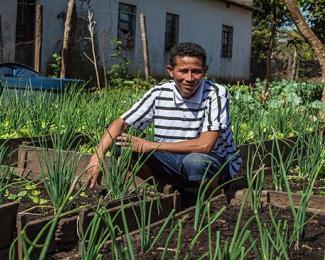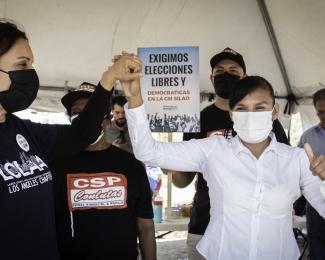FAIR Fish: Reducing Exploitation in the Seafood Processing Sector
"The good part is that it helps us adjust our thinking about how to work."
An innovative project is creating a culture of responsible recruitment in the Thai seafood sector and empowering migrant laborers with access to critical information about their rights.
It was around midday when the two large trawlers docked at Mahachai pier in Samut Sakhon, Thailand. The din of the fishermen could be heard from a distance. Vibrations at the dock were an eclectic mix: Burmese and Thai voices shouting instructions, the clanking of large baskets of freshly caught fish tossed across wet makeshift conveyor belts. Baskets were rushed from the vessels down towards a group of migrant laborers waiting to separate the various fish into piles.
"We have to make sure we organize the fish properly," said Thaet Thaet, a Burmese migrant worker who had been hired that day to offload the boats. "The fish are sorted by species and size, some to be sold at markets, others to go to factories," he said.
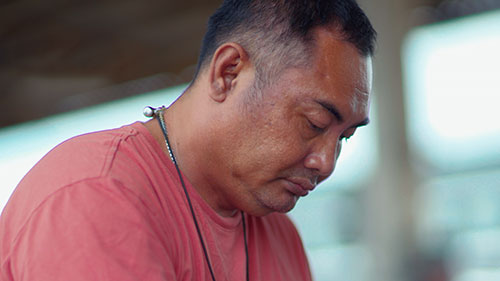
Thaet Thaet at work in Mahachai, Thailand.
"The job can be tedious, but at least it's not dangerous," Thaet said. About 16 years ago, he was a fisherman aboard a trawler. While onboard, he was forced to work brutally long shifts for low pay. His employer verbally and physically threatened the laborers – one time, he recalls, with a handgun.
"We would work for 24 hours a day, and the work was very hard," notes Thaet. "I was unlucky and got a bad employer. The captain would always berate me every day."
Thaet Thaet's experience is far from an isolated case. Migrant workers like him have long faced a range of risks in the fishing trade, including human trafficking, forced labor, and other forms of exploitation.
Research from the International Labor Organization shows that forced labor and human trafficking in the fisheries sector remain a severe global problem. The U.S. Department of Labor and numerous human rights groups have documented forced labor and widespread abuse in the Thai fishing industry. While significant challenges remain, local labor and anti-trafficking organizations say that reforms, research, and enforcement are helping to alleviate the longstanding crisis.
The FAIR Fish: Fostering Accountability in Recruitment for Fishery Workers project, funded by The U.S. Department of Labor's Bureau of International Labor Affairs and implemented by Plan International, is engaging those historically at the root of the trafficking problem.
The project is educating employers, recruiters, and workers about responsible employment and human rights through advocacy, training programs, and a mobile application on workers' rights. The goal is to create a culture of responsible recruitment in the seafood sector and empower migrant laborers with access to critical information about their rights.
"Workers in the seafood processing industry are migrant workers from neighboring countries, mostly Myanmar and Cambodia, and… [that] makes them more vulnerable to exploitation," said Sujintana Hemtasilpa, the project director for FAIR Fish. "So, we are helping employers and recruiters... to protect them from forced labor and human trafficking."
Sujintana added that because most migrant workers are not well informed about Thai labor laws and regulations, they are more vulnerable to exploitative work than Thai workers. As many migrant workers don't read or speak Thai, accessing crucial information about their rights can compound this problem.
"Through our community outreach, we hope that this engagement process and our efforts to change the behaviors of stakeholders, particularly among employers,... will create a more sustainable impact," said Sujintana. And their efforts to clean up the recruitment process are making a difference.
FAIR Fish found that the companies and recruitment agencies working with the project had developed a deeper understanding of responsible recruitment after completing the coaching sessions over two years.
"The good part is that it helps us adjust our thinking about how to work," said Sirikorn Worrapanya, the director of the Central Unity Group Service, one of Thailand's leading foreign worker employment agencies. "It's not just about business and profits alone anymore."
Major seafood industry companies said in five separate interviews that they are taking steps to protect the migrant workers they hire.
"Trainings like this remind you that in order to work together, you must be mindful of human rights, and you must respect the law," said Thida Songnangrong, a human resource officer at Southeast Asian Packaging and Canning.
Back in Mahachai, Thaet Thaet begins another day at work. He recently started volunteering part-time as an interpreter for the local group, Proud Association, an organization that works closely with FAIR Fish to educate fishers about their rights. Today, his mind is free from the once-constant stress of working in exploitative conditions.
"The more training we have, I feel these problems have decreased," Thaet Thaet said. "Employers and employees understand each other better now."
It will still take time and further collaboration to ensure migrant laborers are fully protected, but the FAIR Fish program has helped the industry take essential steps forward so that fishers like Thaet Thaet can thrive.


